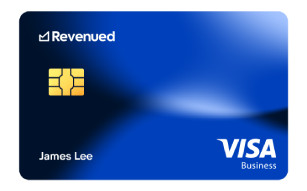What Types of Bank Accounts Should a Business Have?
What Types of Bank Accounts Should a Business Have?
A crucial part of your company’s success is having the right types of bank accounts in place. Maintaining separate business bank accounts can help you stay financially organized and bolster your firm’s cash-flow management. The caveat, of course, is that having too many accounts may become overwhelming and challenging to track.
So which bank accounts should you create, and for what purpose? Revenued has provided a few key suggestions so you can adequately fund your business in the areas it needs the most.
Maintain a Business Checking Account for Operations
To ensure financial separation between your business and personal expenses, you need to open a business checking account.
An operational checking account will serve as the financial hub for your company, and all earnings should flow into it. You should utilize it to pay ongoing expenses like credit cards, utilities, purchase office supplies, and cover travel expenses.
You can also transfer money from this account into your investment and savings accounts, and you will need it if you sign up for a Revenued Business Card account. Revenued uses this account for cash draws and automatic payments.
Be sure to leave a cushion of $500-$1,000 to safeguard against overdrawing your account. Revenued requires that you maintain a minimum balance of $1,000 in your business account at all times.
Create an Account for Marketing Resources
To retain clients and attract new ones, a strong marketing strategy is crucial. Depending on the market you are targeting, you may need to use more than one marketing approach or advertise on different media forms.
This means that you may need to contribute a more significant portion of your budget and create a separate account designated for marketing. In this account, you can maintain money for:
- Print campaigns like business cards, posters, and brochures
- Social media
- SEO
- Traditional media
Used wisely, your marketing budget can be a game-changer for the growth of your business.
Establish an Account to Budget for Taxes
As an entrepreneur, you know that paying your taxes throughout the year comes with the territory. Since no one is withholding your taxes for you, creating an account so you have enough to pay what you owe to the state and the IRS is essential.
The amount of taxes you will owe depends on a few factors, including your revenue, filing status, and state. Get a percentage estimate from your trusted certified public account on how much you should set aside for taxes. They can give you an accurate estimation, and you can budget accordingly.
Many financial experts believe that depositing 30% of your monthly earnings into your designated tax account is a decent rule of thumb. You can use this money to pay taxes throughout the year and at tax time in April.
After you pay your tax bill from your designated bank account and you still have money left over, you can roll it over to next year. This way, you’ll be prepared if Uncle Sam raises taxes.
Set Up a Savings Account for Your Goals and Investments
You can avoid taking out a business loan or lines of credit if you plan ahead. Create a goals and investments account to give your firm a source of business funding down the road to help you grow and expand.
Are you looking to upgrade your office, attend a business seminar, or open a new store? Create business goals for yourself and analyze the end cost of what it would take to accomplish them. Then look at the number of days between now and when you want to reach that savings goal so that you can budget and know exactly what you need to save each month.
It’s vital to isolate this account from your other business savings accounts. A separate account will prevent you from accidentally using those funds for something else.
However, even if you don’t have set plans, you can still benefit from having a separate bank account for unexpected growth opportunities.
An Emergency Savings Account
Establishing and maintaining an emergency savings account is crucial for achieving financial success in your company. You should have a cash reserves account set up for larger unexpected expenses, but you should also have one for emergencies.
Create a liquid saving account that you can easily access in an emergency. The amount you use to fund it will depend on your responsibilities and business expenses. If you are a freelancer who works on their own with minimal costs, you will need to maintain much less in your emergency bank account than if you had contractors or employees to pay.
You should also save enough to cover operational expenses like paying bills and purchasing supplies.
Consider a Flexible Spending Account
The five accounts described above should work well for your business; however, having cash in a flexible spending account frees you up to spend on things as they come up instead of having to budget for every little thing through the year.
Funding this account separately allows you to remain flexible and make an investment or purchase as it comes up without disturbing your other finances.
Choosing the Right Bank for Your Bank Accounts
Establishing your business bank accounts begins with selecting the right bank for your small business needs. Many banks have lower fees and mentoring available for start-ups and small business accounts. It may also help look for a bank with bookkeeping integration, a good mobile experience, and a brick-and-mortar location nearby.
RELATED ARTICLES
Revenued Business Flex Line vs Ecommerce Revenue Based Financing
Learn MoreRevenued Flex Line Pricing vs. (MCA): A Comparative Analysis
Learn MoreWhat is My Business’ Credit Utilization Ratio?
Learn MoreWhy is Cash Flow Important to Your Business?
Learn More
Boost your spending power with the Revenued Business Card
Only pay for what you use at gas stations, hotels, supply stores, supermarkets and more.
Take control with the Flex Line
Check your available balance online and request a cash draw with the tap of your finger, anytime.

